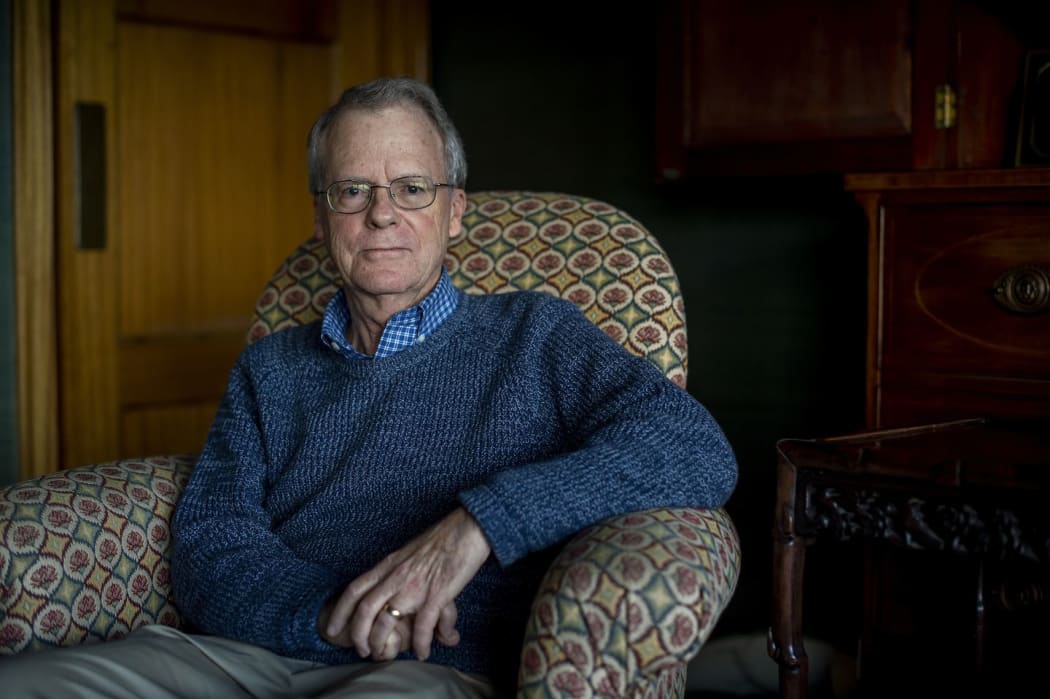The first hint came when he was walking his dog with his wife and stopped to smell the roses. He couldn’t smell them, but she could. He was curious but not concerned.
Retired US neurologist, Dr Daniel Gibbs, has spent his career caring for patients with Alzheimer's disease.
Now he has a front-row seat, after receiving the diagnosis himself and has written a book, A Tattoo on My Brain: A Neurologist's Personal Battle Against Alzheimer's Disease.

Dr Daniel Gibbs Photo: supplied
He joined Jesse Mulligan to share his experience as both a neurologist and a patient about what helps him cope with symptoms and what gives him hope.
He says the book title is both metaphorical and literal.
“I actually thought of the title before I started writing the book and the idea of a tattoo on the brain has two parts to it. One is, literally speaking, I do have something akin to a tattoo on my brain.”
He explains that he was part of a phase three clinical trial for an Alzheimer’s treatment and got rare but serious side effects which left a blood pigment on his brain.
“It will always be there on my brain. It doesn’t cause any problems but that is literally like a tattoo on my brain.
“The other, more figurative, meaning is I’ve really tried to do all I can to limit the stigma associated with Alzheimer’s disease which, in this country, is a terrible problem. People don’t want to talk about it, they don’t want to hear about it but it’s really important to address it full-on, particularly in the early stages. That’s the figurative sense of coming out of the closet, if you will, and saying, yes I have Alzheimer’s and let’s talk about it.”
Dr Gibbs says that in his early days of practise, telling patients they had Alzheimer’s was his least favourite diagnoses to give.
“There was just nothing to do about it. There was really no hope and back then there was no medication, there was nothing. Many, if not most of us, who were dealing with Alzheimer’s patients at that time tended to try beat around the bush and say it’s probably just aging or maybe you’re depressed and try to put of a diagnoses which is really a terrible thing to do.
“When it happens now, it’s unforgiveable because there are things that can be done to slow the progression of Alzheimer’s and reduce the risk that we know now.”
He put down his inability to smell the rose to natural aging and says smell is one of their first things to go as we get older.
“The other thing I knew about, a neurological disease associated with the loss of smell, was Parkinson’s disease. About 80 percent of people with Parkinson’s start to lose their sense of smell years before they get any of the more classic symptoms of Parkinson’s like the tremor or the gait disorder.
“So I thought, maybe I’m on the pathway to get Parkinson’s disease. I didn’t realise at the time that loss of smell was also associated with Alzheimer’s, but it is and virtually all people who have Alzheimer’s disease have at least some decrease in their ability to smell but most are not aware of it until they’re tested.”
As someone who’s got an intimate knowledge of the brain, he says it’s both better and worse that he knows what’s coming.
“Certainly I know what’s coming but, on the other hand, I’ve made it my business to find out what I can do to slow the progression of the disease with the hope that I’ll die of something else before I die of Alzheimer’s because the end stages of Alzheimer’s, that we all are aware of, are people in nursing homes who can’t remember their children.
“It’s really terrible. But most people who have Alzheimer’s are in much earlier stages where they can function pretty well and, during that time, there are things that we can do to slow the progression of the disease and perhaps allow nature to take us for another reason before we get to the end stages of Alzheimer’s.”

